Although after the frantic weeks in early Spring we seem now to be in a political limbo, when nothing is achieved except an escalation in rhetoric and an increase in polarisation, actually, there’s quite a lot going on. Some of it looks like political legacy building, but hey, if it works…
Sharing access to health and social research in the UK
BU is gathering views internally on the consultation “Make it Public” by the Health Research Authority. Responses to an internal survey will inform BU’s institutional response.
The HRA’s consultation gives everyone involved an opportunity to influence the Health Research Authority’s future strategy to improve public access to information about health and social research in the UK. Please read the strategy before you answer the questions.
The BU survey is anonymous, however we have asked about your role at BU to inform our response. We have taken the content and questions directly from the HRA’s consultation. Please take time to complete it if you have experience in this area.
New Commission for Students with Disabilities
The Minster has announced a new body to speak out for students with disabilities…or actually, has renamed an existing group and confirmed he supports its work. Chris Skidmore announces new Commission to improve support for disabled students: 27th June 2019. The OfS is setting it up: [The Minister] ”has instructed the Commission to identify and promote good practice which helps those with disabilities have a positive experience at university. The Commission, formerly Disabled Students’ Sector Leadership Group (DSSLG), will use the DSSLG’s existing guidance for providers on supporting disabled students inclusively and look at what more needs to be done.”
Universities Minister Chris Skidmore said:
- Living with a disability should never be a barrier to entering higher education and as Universities Minister, I am determined to ensure disabled students get the support they need to have a positive, life-changing university experience.
- There are a record number of students with a disability going to university, but we must do more to level the playing field and improve the experience and outcomes for disabled students.
- It’s my personal priority that those living with a disability have an equal chance to succeed in higher education. I want to see all universities face up to their responsibilities and place inclusion at the heart of their access and participation agenda.
- The Commission will look at approaches which work well to improve support for disabled students, such as more inclusive curricula, restructuring support for students and enhancing learning and teaching environments.
Brexit
All those who backed Boris on the basis that he would flunk a hard Brexit (eg George Osborne at the Evening Standard) seem to have their bluff called. This week Boris Johnson has written to Jeremy Hunt saying that leaving on 31st October is a “do or die” thing. So it looks like he has been nobbled by the Brexiteers , perhaps spooked by the reaction stories of his private life into thinking that his lead with the membership was slipping away. He looks pretty committed now. But he has also made lots of speeches suggesting it is all going to be very straightforward….(there’s a million to one chance of not getting a deal, apparently).
Jeremy Hunt meanwhile has refused to make such a robust commitment but continues to challenge Boris on a number of fronts and to present himself as the experienced negotiator.
Both of them sound like the US President from time to time. And they are both making huge spending commitments. They were both at the Pavilion on Thursday evening, and the local news showed Boris giving BU a tiny plug and also repeating his commitment (as we noted last week) to removing international students from the immigration cap.
Last week we talked about the possibilities for recess being cancelled – that seems unlikely, so we are likely to have an announcement of the new PM on 22nd July, a frantic couple of days in Parliament and then a recess that will probably end earlier than usual, with EU negotiations taking place in the background – if they can find anyone to negotiate with in what is likely to be a long hot European summer.
Local MP Tobias Ellwood was mentioned on Monday’s Radio 4 Today programme talking about the ‘nuclear’ Brexit option of taking down Boris Johnson’s Government through a vote of no confidence should he intend to push through a no deal Brexit to ensure exit from the EU on 31 October. Tobias states a group of 12 backbencher and ministerial Conservatives are already in talks and prepared to risk their careers, including losing their Conservative candidacy, to bring Boris premiership down if he pursues a no deal Brexit. This would be done either through ministers joining backbencher dissidents to vote against the Government (and party whip) or a larger group of MPs abstaining en masse so the Government loses the vote. Tobias also featured on BBC’s Panorama programme talking about this potential rebellion. If the Government lost a no confidence vote it would pave the way for a general election.
REF
Research England have published the Real-Time REF Review evaluating perceptions and attitudes towards the Research Excellence Framework (REF).
- Views on the REF are not as polarized or as extreme as is commonly believed, or reflected in coverage of the REF in the media. Extremely negative views were in the minority, while a majority of respondents had neutral or moderately negative attitudes about the REF.
- REF has both positive and negative influences on research activity. The REF is seen to increase engagement outside academia and the use of open research activities, whereas game playing and impacts on creativity are deemed to be the most negative influences.
- Open access and research practices was the most consistently positive and impactful influence of the REF on both researchers’ own work and UK academic culture. Survey data suggested the move to encourage more open research practices was seen as the most positive change in REF 2021.
- Researchers generally saw the changes to REF 2021 in a positive light. Increased emphasis on open research practices was seen as the most positive change.
- It may be fruitful for institutions to share best practices in REF readiness rather than attempting to ‘reinvent the wheel’ as the REF process approaches the submission stage and as the new rules are more widely embedded
And interestingly:
- Notably, women and independent early and mid-career researchers reported that changes made to REF 2021 were more likely to influence the expectations placed on them, although it was not clear whether these changing expectations would be positive or negative ones. The finding that early-career researchers report more influence is consistent with interviews, in which managers highlighted a disproportionate influence of the REF on early-career academics. The difference across genders is also noteworthy and merits future consideration
- Although not assessed in the survey data, analysis of the interviews conducted with university managers revealed some negative impacts upon the health and well-being of the research community with respect to the REF. With respect to the changes to REF 2021 where equality and diversity considerations are taken more plainly into account, most managers felt that this would have a positive impact upon the well-being of academics for whom equality and diversity issues were faced in the previous REF 2014. Analysis suggests that the new approaches to equality and diversity and reduction in outputs may lessen anxiety and stress caused by the rules of the previous REF cycle.
- However, notable findings are: that those who identified as submitting to Panel B – engineering and physical sciences – reported the most beneficial influences on research activities in academic culture, and that those from Panel D – arts and humanities – reported the least beneficial influence of the REF on research activities.
- Further, in survey data, Panel C participants reported a greater influence of the REF on the quantity, quality, scope, and prestige of outputs they produced. This may suggest a challenge to meet expectations of the REF, particularly as interdisciplinary research is often located within this group of cognate disciplines.
Immigration
Home Secretary Sajid Javid formally requested the Migration Advisory Committee (MAC) to review and advise on salary thresholds for the 2021 immigration system. All the details remain as we’ve already informed in previous policy updates, this simply triggers the requirement for the MAC to carry out the review (again) and report back to the Government in January 2020.
Sajid stated: “It’s vital the new immigration system continues to attract talented people to grow our economy and support business while controlling our borders. These proposals are the biggest change to our immigration system in a generation, so it’s right that we consider all of the evidence before finalising them. That’s why I’ve asked independent experts to review the evidence on salary thresholds. It’s crucial the new immigration system works in the best interests of the whole of the UK.”
In their last review the MAC advised the Government to continue with the existing minimum salary thresholds for the future immigration system. This means international entrants would need to be paid at least £30,000 (for an ‘experienced’ role) and new entrants (including recent graduates) at least £20,800.
The new review asks the MAC to
- consider how future salary thresholds should be calculated
- what levels to set salary thresholds at
- If there is a case for regional salary thresholds for different parts of the UK
- whether there should be exceptions to salary thresholds, e.g. newly started occupations or work shortage occupations.
Free Speech
HEPI have published Free Speech and Censorship on Campus defending free speech in Universities.
- HEPI say:the report recognises the concerns of those who wish to restrict free speech as a way of protecting others, but concludes that restrictions on free speech usually end up being counter-productive. Despite the UK’s Government’s strong rhetoric supporting free speech in universities, the paper claims the current single biggest threat to free speech on UK campuses currently comes from the Government’s own Prevent programme.
- Corey Stoughton, the author of the report, states:“…honest confrontation of legacies of discrimination and unequal distribution of power allow us to see how censorship replicates those problems and to focus on the real threats – like the UK Government’s ill-conceived Prevent strategy, which has had a demonstrable chilling effect on free speech in universities.”
- Nick Hillman, Director of HEPI, said: ‘We are delighted to be publishing this nuanced but firm defence of free speech. It challenges students, universities and, above all, Government Ministers to be more careful when they are tempted to impose new restrictions on free expression.There are few justifications for limiting free speech beyond current laws. That is true whether it is students wanting to block provocateurs from speaking or Government Ministers mixing up the prevention of terrorism with blocking legitimate free expression.’
Raising aspirations
In a debate on raising aspirations of secondary school pupils Dr Matthew Offord MP (Conservative) urged the Government not to view academic and technical education routes as two simplistic alternatives. He insisted that permeability and flexibility between different types of learning, throughout the academic journey would be crucial in underpinning increased social mobility and productivity. He also argued that HEIs must develop an understanding of T-levels to communicate entry requirements to prospective students and level 3 providers. He pushed the Government to drive collaboration between schools, universities and local Government. To raise aspirations within school age pupils he set out three elements to be addressed:
- interventions that focus on children’s parents and families
- interventions that focus on teaching practice
- out-of-school interventions or extracurricular activities
Shadow HE Minister Gordon Marsden (Labour) suggested the Government should pursue sustained and dedicated programmes, with children from a much earlier age, and with particular social and ethnic groupings. He also argued for the need to enact a robust, independent and wide-ranging review of admissions processes to higher education, removing unconditional offers and investigating the value of post-qualification admissions.
Nick Gibb (Minister for School Standards) stated “For the good of our economy, we need more young people to pursue degrees and careers in the sciences, including computer science. We have already seen excellent progress, with entries to STEM A-levels increasing by 23% since 2010”. The Minister reassured members that views expressed during the debate had been taken into account as part of the Post-16 review process.
Staff Mental Health
Q – Sir Mark Hendrick: To ask the Secretary of State for Education, with reference to the report by the Higher Education Policy Institute entitled Pressure Vessels: The epidemic of poor mental health among higher education staff, what assessment he has made of the reasons behind the increase in poor mental health among academics and the increasing numbers of university staff being referred to counselling and occupational health services.
A – Chris Skidmore:
- Mental health is a priority for this government which is why last week (17 June 2019) my right hon. Friend, the Prime Minister announced measures which overhaul the government’s approach to preventing mental illness. These measures include £1 million to the Office of Students for a competition to find innovative new ways to support mental health at universities and colleges.
- The Department for Education is also working closely with Universities UK on embedding the Step Change programme, which calls on higher education leaders to adopt mental health as a strategic priority and take a whole-institution approach to embed a culture of good mental health practice.
- The university Mental Health Charter announced in June 2018 will drive up standards in promoting mental health and wellbeing, positive working environments and excellent support for both students and staff.
- The Independent Review of the Concordat to Support the Career Development of Researchers led by Professor Julia Buckingham has recognised issues of wellbeing and the challenges that arise from the use of short and fixed term contracts. Recommendations are currently under review and a revised concordat is expected by the end of June.
- However, universities are autonomous institutions and it is the responsibility of Vice Chancellors to give due consideration to the way their policies and practises impact on staff. This includes responsible use of performance management, workload models and other metrics to assure both student and staff success.
Changing nature of future work
The Learning and Work Institute has published Tomorrow’s World – Future of the Labour Market highlighting the shifts in employment culture and adaptive skills that young people will need for the future labour market. It suggests that young people will be increasingly likely to be self-employed, in busier jobs, need to adapt and more frequently update their skills because of the pace of technological changes and their longer working lives (50 years due to higher retirement age).
Some points from the report:
Young people will need a rising bar of skills needs and a wider pool of skills to enter and progress at work and to adapt to change. Changes in sectors and occupations, coupled with changes within existing jobs, imply an increased demand for interpersonal skills, cognitive skills, customer and personal service, English language, literacy, numeracy, digital, communication, team working, and management.
- A more diverse range of young people will participate in the labour market, with further increases in participation among women, people with disabilities, and other groups. This makes it even more important to tackle education and employment inequalities among young people, or these will have long-lasting impacts.
- Higher occupations and sectors such as health and social care are likely to continue to grow, and the nature of work will continue to change.
- There will be more opportunities for young people to work flexibly, with policy helping determine if this benefits both people and employers. Employment laws and the tax and benefit system need to support flexibility and security for young people. More workers in the workforce with caring responsibilities means employers will need to offer more flexible options.
- Longer working lives and economic change mean young people will need to be adaptable and flexible. A wider and deeper core set of skills will help young people adapt. Learning and social security systems must reflect this ‘new normal’.
Stephen Evans, Chief Executive of the Learning and Work Institute, stated:
“Young people are going to face huge changes during 50 year careers. Attention often focuses on the risk of robots replacing jobs, but further growth in self-employment and changing skills requirements in most jobs could perhaps have bigger impacts. Young people must get the support they need to prepare for this future. It is no good just focusing on the skills needed for jobs today, we also need to give young people the skills they need to adapt to future changes, many of which cannot be predicted accurately.”
Social Mobility
The Sutton Trust has published Elitist Britain 2019.
The nature of Britain’s ‘elite’ is higher in the national consciousness than ever, with a series of events, including 2016’s vote to leave the European Union, putting a focus on the strained trust between significant sections of the population and those at the highest levels of politics, business and the media.
Social mobility across the UK is low and not improving, depriving large parts of the country of opportunity. This contributes strongly to this sense of distance. This study, conducted for the first time by both the Sutton Trust and the Social Mobility Commission, looks at the backgrounds of around 5,000 individuals in high ranking positions across a broad range of British society, and provides a definitive document of who gets to the top in Britain in 2019.
The report paints a picture of a country whose power structures remain dominated by a narrow section of the population: the 7% who attend independent schools, and the roughly 1% who graduate from just two universities, Oxford and Cambridge.
Key findings:
- Politics, the media, and public service all show high proportions of privately educated in their number, including 65% of senior judges, 59% of civil service permanent secretaries and 57% of the House of Lords.
- 39% of the cabinet were independently educated, in stark contrast with the shadow cabinet, of which just 9% attended a private school.
However:
- Significant is decline of grammar school alumni among the elite (20%), down about 7 percentage points in five years, and a consequent rise in those educated at comprehensives (40%, up 9%). This reflects the abolition of the selective system in most of England during the 1960s and 70s, and the rise of the comprehensively educated generation to positions of power.
Access to professions
- Law, defence and the academic world had the highest level of these “elites”.
- University Vice Chancellors had relatively low levels of private school and Oxbridge educated members among their number
- Media – Britain’s media, including newspaper columnists, and high-profile editors and broadcasters, had some of the highest rates of attendance at independent schools and elite higher education institutions. Newspaper columnists, who play a significant role in shaping the national conversation, draw from a particularly small pool. Only 5% of newspaper columnists attended a non-Russell Group University.
- Police and Crime Commissioners were more likely than those elected at local council level to have attended independent school, 29%, the same as MPs.
- Civil service permanent secretaries (59%), Foreign Office diplomats (52%), and Public Body Chairs (45%) have among the highest rates of independently educated in their ranks. Despite recent efforts to overhaul entry into the Civil Service, its highest levels remain highly exclusive, with 56% of permanent secretaries having graduated from Oxford or Cambridge, and 39% having attended both a private school and Oxbridge.
- The chairs of public bodies were more likely than their CEOs to have come from exclusive educational institutions; 45% from independent schools compared to 30%. This may reflect the age of such post-holders as well as their social class background.
- Women are under-represented across the top professions (5% of FTSE 350 CEOs, 16% of local government leaders, 24% of senior judges, 26% of permanent secretaries and 35% of top diplomats). Socio-economic class and gender can often combine to create a ‘double disadvantage’, with women from lower socio-economic backgrounds less likely to be socially mobile. Interestingly for women who do make it to the top, their journeys do not always look the same as those of their male peers. In a variety of sectors, women at the top are less likely to have attended Oxbridge than their male counterparts.
- The Creative Industries had the lowest levels of these groups; however, among the wealthiest members of the TV, film and music industries, university attendance was higher (42%), with about a quarter attending Russell Group institutions. Also 38% of independent school attendees, although the number attending comprehensives has risen by 18% since 2014.
Policy recommendations from the report:
Sir Peter Lampl, Chairman of the Sutton Trust and the Education Endowment Foundation, stated:
“Britain is an increasingly divided society. Divided by politics, by class, by geography. Social mobility, the potential for those to achieve success regardless of their background, remains low. As our report shows, the most influential people across sport, politics, the media, film and TV, are five times as likely to have attended a fee-paying school.
“As well as academic achievement an independent education tends to develop essential skills such as confidence, articulacy and team work which are vital to career success. The key to improving social mobility at the top is to tackle financial barriers, adopt contextual recruitment and admissions practices and tackle social segregation in schools. In addition, we should open up independent day schools to all pupils based on merit not money as demonstrated by our successful Open Access scheme.”
The Association of School and College Leaders released this statement:
“We need to do many things to break this cycle but a good start would be for universities and industry to do more to recognise the background of candidates through the greater use of contextual recruitment and admissions practices, as the report recommends.
Industrial Strategy developments – tourism sector deal
The government have published the Tourism sector deal – the latest in a string of sector specific plans linked to the Industrial Strategy. They have also published an International Business Events Action Plan outlines how government will support the events industry in attracting, growing and creating international business events.
We have pulled out the actions from the sector deal below:
People
- The government will work closely with industry on the rollout of two new T Level courses to help deliver the hospitality and tourism workers of the future.
- The government will continue working with industry, through ‘Fire It Up’ and other campaigns, to promote apprenticeship and the opportunities for careers in the hospitality and tourism sector.
- The government will engage fully with industry during its Post-16 Qualifications review to ensure the sector has an opportunity to feed into future policy development.
- `The Department for Work and Pensions will continue its partnership agreement with the hospitality industry to help provide its customers with a structured route into work in the Sector.
Sector action to support tourism
- The sector will create 30,000 apprenticeship starts each year by 2025, covering all grades, from entry-level roles up to degree-level apprenticeship, and across a range of disciplines.
- Employers will commit over £1m of funding to an ambitious retention and recruitment programme to revolutionise the pipeline of talent that joins the sector.
- A new industry mentoring programme will be developed to support 10,000 employees each year. This will aim to enhance careers as well as helping to ensure talented people remain within the sector.
- The sector will increase the percentage of the workforce receiving in-work training to 80 per cent.
Places
- The government will pilot up to five new Tourism Zones to increase visitor numbers across the country. More information about the bidding process will be released later in the year, with a view to commencing projects in 2020.
- Tourism Zones will also receive a range of support co-ordinated by central government.
Sector action to support tourism
- Tourism Zones will be developed and delivered by businesses local authorities and Local Enterprise Partnerships (in England) who will determine the specific priorities of an area.
- A range of larger businesses have offered training and support for small and medium enterprises within Tourism Zones.
Business Environment
- Alongside the Sector Deal the UK government’s International Business Events Action Plan 2019-2025 has been published and sets out the steps the UK government will take to support the UK to maintain its position as a leading destination for hosting international business events in Europe.
- The UK government will achieve this by providing support in relation to the six key drivers that event decision makers consider when determining where to host an event, from providing government advocacy to financial support.
Sector action to support tourism
- The Events Industry Board, set up to advise government, has identified two priority areas which they can help and support – skills and infrastructure. These priorities are being considered by working groups set up by the Board and will report later in the year.
Infrastructure
- The UK government will make travel to the UK and around the UK easier for tourists through the development of its Maritime and Aviation strategies, as well as a number of rail policy developments.
- The UK government is investing in a number of projects across the Museums, Heritage and Arts sectors that will enhance visitor’s experience. These include supporting the conservation work at Wentworth Woodhouse, the development of a new interpretation centre at Jodrell Bank and the development of England’s Coast Path, the world’s longest coastal path.
- The UK government will launch a new £250k competition to improve broadband connectivity in conference centres. This will be a UK wide competition.
- The UK will build on its excellent existing offer, to become the most accessible destination in Europe.
- The British Tourist Authority will increase their publicity about accessible travel and provide inbound visitors with increased information about the accessibility offer in the UK through a brand new website.
Sector action to support tourism
- Industry will create an extra 130,000 bedrooms across the UK by 2025 – a significant increase of 21 per cent in accommodation stock.
- Industry will continue to invest in tourism attractions and innovative products, to remain a global leader in the experiences the UK offers visitors.
- The sector will support the UK government’s ambition to be most accessible destination in Europe. They will take forward a number of measures, including better coordination of accessible itineraries online, and increasing the visibility of people with accessibility issues in promotion and marketing campaigns
Ideas
- The government has supported the British Tourist Authority development of Tourism Exchange Great Britain. Launching in June 2019, this is an online business-to-business platform, which will connect tourism suppliers to global distributors.
- The UK government has provided £40k to the Tourism Alliance in England to carry out further research on how, where and why businesses within the sector obtain advice on compliance, which will inform the shape of further advisory services including Primary Authority.
Sector action to support tourism
- The industry and British Tourist Authority will work together to create a new, independent Tourism Data Hub, which can help the sector across the UK to better understand visitors’ preferences for location, activities and products in real time. It will also enable the sector for the first time to gather better data about the people choosing not to holiday in the UK
Action plan
“The Action Plan lists a set of criteria that events will need to meet in order to qualify for the UK Government’s support. This includes criteria on the minimum number of delegates and the proportion of those travelling from overseas. It then outlines the UK Government’s support offer across a number of areas. Key actions include:
- Government advocacy – A comprehensive advocacy package will be offered – ranging from Ministers being available to write letters of support in order to help with bidding for events to offers of hosting delegates in historical Government property;
- Financial support – We will continue funding the VisitBritain led Business Events Growth Programme,and look at opportunities for expanding it, especially where business events are identified as critical to meeting the UK’s key economic sector objectives; and,
- Arrivals and welcome – The Border Force and UK Visas and Immigration will offer a relevant support offer to delegates.”
Lifelong learning
Life Transition Point Learning: The Learning and Work Institute published Learning at Life Transitions focussing on the importance of understanding the needs of adult learners particularly at the key points in their lives when they might be more or less likely to take up learning opportunities. In particular, these points can be parents returning to work after caring for young children and also people preparing for retirement.
Transition back to work after caring for children:
- Adults, and in particular women, with caring responsibilities who are outside of the labour market are under-represented in learning
- Taking parental leave or returning to work can act as a trigger to engage in learning. This can result from greater time or a change in attitude or perspective.
- Returners also face a range of barriers to learning. Adults returning to work after caring for children tend to face significant challenges in relation to work and time pressures, primarily related to childcare
Transition into and through retirement: Participation in, and decisions about, types of learning opportunities alter as adults retire. Although participation in learning tends to decline with age, those approaching retirement have higher levels of participation than the national average.
- Moving into retirement can create space to consider learning for enjoyment for the first time. The perceived value of learning can often be greater than at previous life stages, with many adults placing greater value on the role of learning, particularly in relation to providing intellectual and social stimulation.
- Adults facing retirement experience a range of barriers to engaging in learning. Attitudinal factors, such as feeling too old, not wanting to learn or the perception that their skills and capabilities may have deteriorated can be common.
The report’s recommendations for Policy:
- National lifelong learning strategy – It is vital that every effort is made to harness the opportunities presented by the 4th Industrial Revolution, while ensuring that no one – including those seeking to leave or return to the labour market – is left behind.
- Increase investment in lifelong learning – Government should reverse the decade-long fall in real-terms investment in lifelong learning to drive economic growth, promote social justice and support inclusive communities
- Personal learning accounts – Government should develop and trial a personal learning account model, as a mechanism to both stimulate greater engagement in learning and provide a vehicle through which investment in learning by the state, employers and individuals can be aligned and optimised.
- As part of the wider development of the National Retraining Scheme, the government should give particular attention to how returners can be supported to upskill and retrain to re-enter the labour market.
- Access to apprenticeships. Flexible timetabling and blended learning options to facilitate part-time and flexible apprenticeship models should be developed and promoted.
Dame Ruth Silver, President of the Further Education Trust for Leadership
The changing nature of work and of retirement mean that these transitions are changing in nature and need to be rethought. People are more likely to move between jobs, or to need to re-skill or up-skill, than they were 20 or 30 years ago. They are also much more likely to continue working after ‘retirement’, or to seek different ways of combining work and life, and not only when approaching the sort of age traditionally associated with retirement. Transition is increasingly a part of our everyday life; an ongoing consideration.
Other news
The leaders of every general further education college in England have written an open letter to the Chancellor and Secretary of State for Education urging them to “answer the calls from business” and respond to the “challenges of technological change and Brexit” by urgently investing in the country’s technical and vocational education system by implementing the main recommendations of the government’s recent Post-18 Education Review. The Augar Review called for, amongst other things, an end to the 17.5% cut in education funding for 18-year-olds, support so that everybody, regardless of age, to achieve to at least level three, and a rebalancing of the traditional post-18 educational landscape.
- In many respects the Augar Review represents a wider emerging consensus across England. We are sure that you will agree with us and other key stakeholders that further education colleges have been neglected, and that there is now a growing appreciation of their unique role, value and potential. What we now need are decisions and commitments: with your political leadership, support and resolve, colleges will be able to build on what they already do to reach more employers and more adults and make the differences our economy and society need.
David Hughes, Chief Executive of the Association of Colleges said: It is extraordinary to have every leader in every general further education college in the country collaborate like this. But then these are extraordinary times. These college leaders are uniquely placed at the hearts of their communities, working closely with local, national and international business, supporting individuals to get on in life, and driving the social mobility agenda. Government needs to listen to them if they’ve got any chance of tackling the major issues this country faces, now and in the future.
Welsh Digital Skills: the Welsh Government have published a strategic framework for post-16 digital learning to increase the continuity of learning experiences and transition from compulsory to post-compulsory learning provision. Vision and aims:
- Clear, nationally agreed standards for digital skills are in place to enable learners and staff to meet industry, private and public sector requirements, building on the digital competences developed during compulsory schooling
- The coherence and accessibility of digital learning is increased through a range of curriculum delivery methods that are appropriate to learner and employer needs
- The benefits of digital technology, and possible barriers to their achievement, are understood by all staff including senior leaders
- A culture of collaboration ensures that information and best practice are shared to drive effective use of digital skills to support leadership, learning and business processes
- Staff, learning and business resources are aligned to enable efficient support of the continually evolving digital requirements of post-16 education
Kirsty Williams, Welsh Education Minister, stated: Our Economic Action Plan highlights the importance of businesses adapting to the opportunities and the challenges presented by new technologies in order to grow the Welsh economy and pursue our aim of prosperity for all. We can’t predict exactly how technology will evolve over the next decade, but we can equip our post-16 learners with the confidence and capability they will need to use digital tools in their work and their everyday lives.
What’s your favourite subject?
The British Academy published a YouGov Poll revealing the nation’s favourite school and university subjects. The study, entitled, ‘a nation of enquiring minds’ reveals that:
- Given the opportunity to start a university degree tomorrow, UK adults were most likely to choose a subject in the humanities and social sciences –
- 28% would opt for either the humanities (14%) or social sciences (14%),
- engineering and technology (10%)
- mathematics and computing (10%)
- medicine (9%) .
- English (17%) and history/classics (15%) topped a list of the nation’s favourite school subjects,
The report finds that arts, humanities and social sciences (AHSS) graduates look forward to strong employment prospects. It states AHSS graduates are as likely to have a job, as resilient to economic downturn, and just as likely to avoid redundancy as STEM graduates. However, AHSS graduates are more flexible (more likely than STEM graduates to voluntarily change job or sector).
Professor Sir David Cannadine, President of the British Academy, said: “The humanities and social sciences help us to make sense of the world in which we live so it is little wonder that the desire to study these subjects at school and university is so great. We not only love the humanities and social sciences in the UK but we also excel at them. Graduates from these disciplines are highly employable and able to weather the changes of a fluctuating job market, while our researchers are disproportionately successful in international funding competitions, punching well above their weight on the world stage.
Subscribe!
To subscribe to the weekly policy update simply email policy@bournemouth.ac.uk
JANE FORSTER | SARAH CARTER
Policy Advisor Policy & Public Affairs Officer
Follow: @PolicyBU on Twitter | policy@bournemouth.ac.uk
 At Bournemouth University we collaborate with global institutions and organisations through our education, research and practice.
At Bournemouth University we collaborate with global institutions and organisations through our education, research and practice. BU2025 sets out ambitious plans and targets for research at BU. In support of these, an exciting new opportunity has been developed.
BU2025 sets out ambitious plans and targets for research at BU. In support of these, an exciting new opportunity has been developed. Every BU academic has a
Every BU academic has a  By clicking on this box, on the left of the Research Blog home page just under the text ‘Funding Opportunities‘, you access a
By clicking on this box, on the left of the Research Blog home page just under the text ‘Funding Opportunities‘, you access a 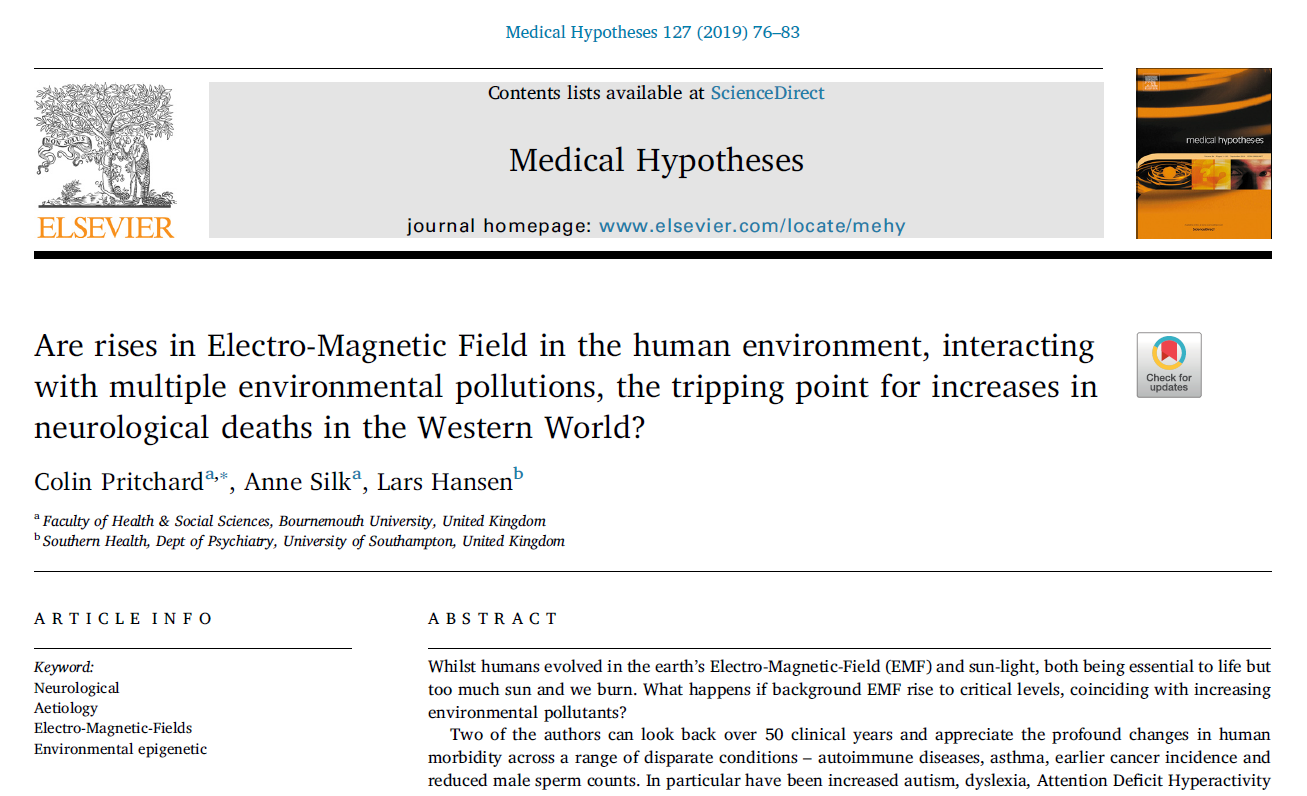
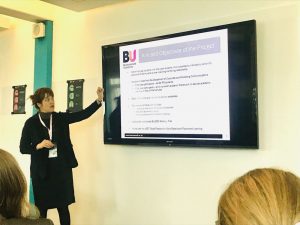 The theme was on the evolving landscape of staff student partnership where various initiatives and university experiences were discussed and explored.
The theme was on the evolving landscape of staff student partnership where various initiatives and university experiences were discussed and explored.
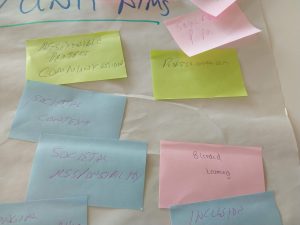
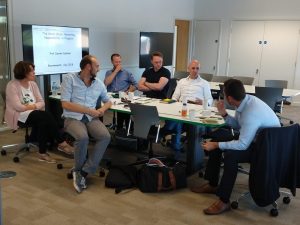
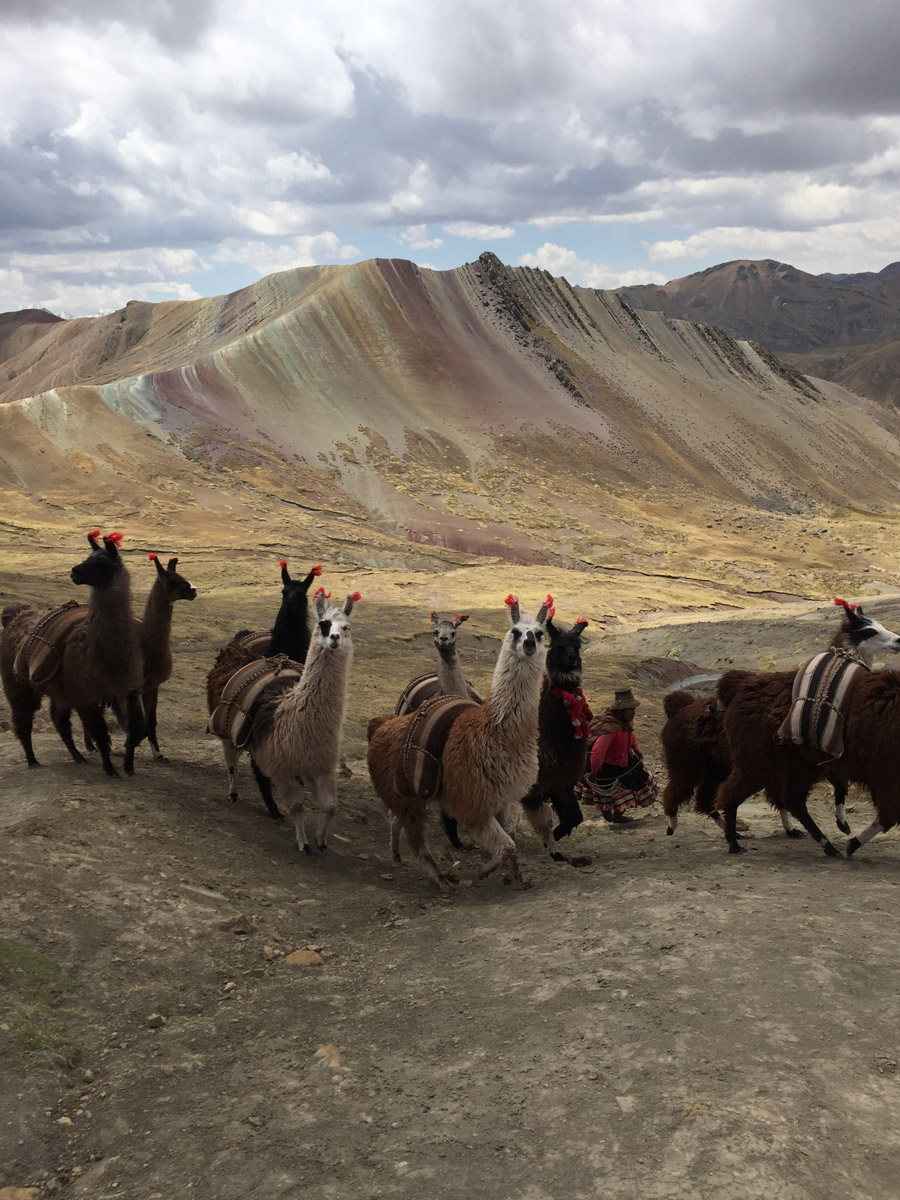
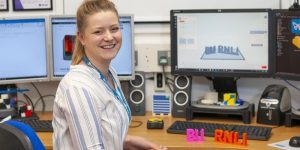
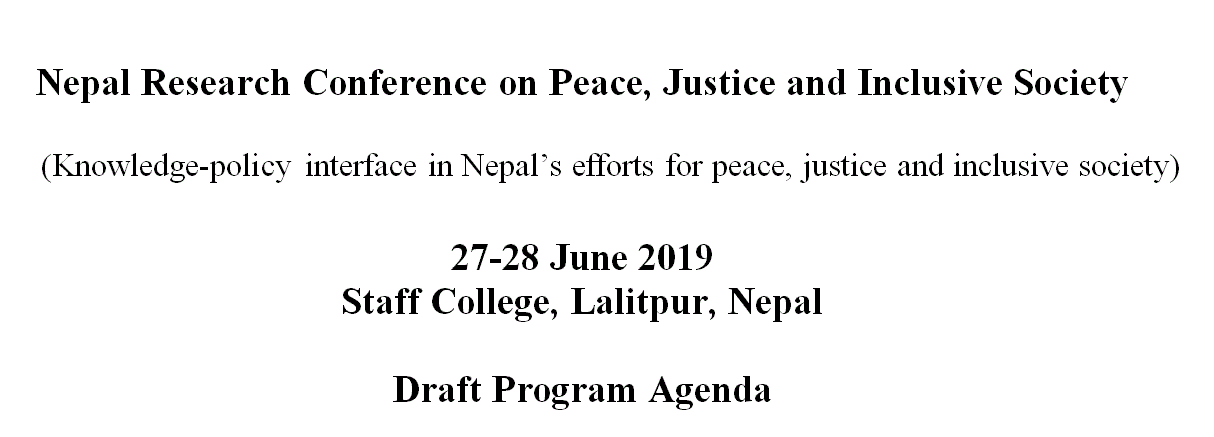
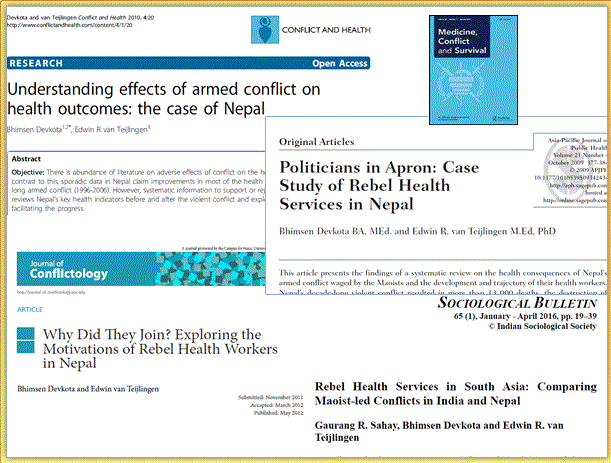
















 New Nepal scoping review on maternal & neonatal health
New Nepal scoping review on maternal & neonatal health Fourth INRC Symposium: From Clinical Applications to Neuro-Inspired Computation
Fourth INRC Symposium: From Clinical Applications to Neuro-Inspired Computation Writing policy briefs
Writing policy briefs Upholding Excellence: The Concordat to Support Research Integrity
Upholding Excellence: The Concordat to Support Research Integrity ECR Funding Open Call: Research Culture & Community Grant – Application Deadline Friday 12 December
ECR Funding Open Call: Research Culture & Community Grant – Application Deadline Friday 12 December MSCA Postdoctoral Fellowships 2025 Call
MSCA Postdoctoral Fellowships 2025 Call ERC Advanced Grant 2025 Webinar
ERC Advanced Grant 2025 Webinar Horizon Europe Work Programme 2025 Published
Horizon Europe Work Programme 2025 Published Horizon Europe 2025 Work Programme pre-Published
Horizon Europe 2025 Work Programme pre-Published Update on UKRO services
Update on UKRO services European research project exploring use of ‘virtual twins’ to better manage metabolic associated fatty liver disease
European research project exploring use of ‘virtual twins’ to better manage metabolic associated fatty liver disease